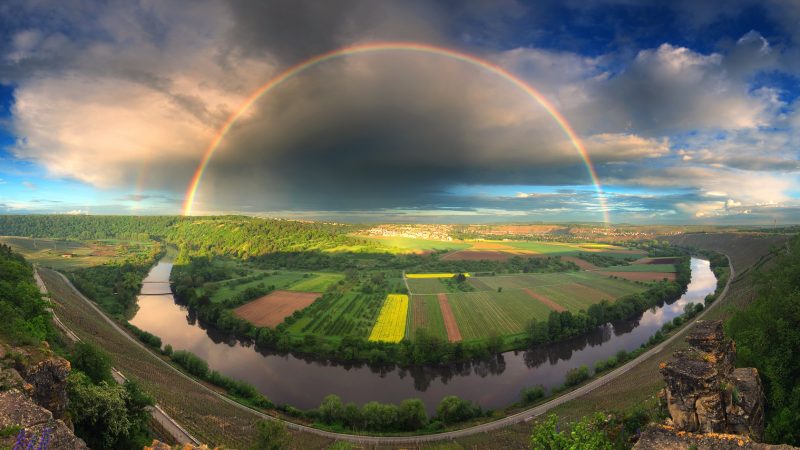Today's neoclassical economist is an emperor with no clothes
‘Economics is a failing discipline doing great harm – so let's rethink it.’
‘Something is killing conventional economics and it’s probably an inside job. Reliance on abstract mathematics and absurd assumptions has brought the discipline into disrepute, even if politics and policy are guided by the ghosts of its teaching.’-Andrew Simms*

Photo: transitionvoice.com
‘An economist is an expert who will know tomorrow why the things he predicted yesterday didn't happen today.’-Laurence J. Peter
‘The Non-exemplary Lives of Economists’
By Prof. Branko Milanovic Via The Globalist.
In a recent email from The Globalist, the following paragraph caught my attention and imagination. What I began to read was music to my ears:
‘In today’s feature, Branco Milanovic, one of the world's preeminent experts on inequality, raises a tantalizing question: Can social scientists who often lead privileged lives in rich societies – and thus have limited cultural knowledge – really produce breakthroughs in social sciences?
‘After all, their ultimate proposition is that they can find a way to figure out how people behave under conditions that the social scientists have never experienced themselves —nor, for that matter, has anyone they know, Branko argues.’...More on this a bit later.
Nota bene
I cannot tell you enough how deeply and strongly this has resonated with me. Believe me, what I wish to note below, is nothing but the gospel truth.
From day one, when as a mature and married student (with a life story to tell already), I had embarked on my first degree in economics, all those years ago, in mid 1970s, I began to wonder how on earth the great majority of the professors who were teaching me, or the authors of the text books they were recommending us to buy at significantly unjustified high prices, could have any answers to the pertinent questions they were asking or trying to answer!
To my mind, they had no story to tell. They had no life journey to share. There was no evidence of any encounter with other cultures, religions, civilisations and peoples. How boring that was, I thought!!
They never told us who they were, what they were or what they believed in. All we knew was that they got their first degree from this or that ‘prestigious’ university. They then carried on to postgraduate studies at another even more ‘prestigious’ university. All these enabled them to get a teaching post at this or that university.
Then, they had to publish articles that nobdoy could understand, or indeed, was interested to read, at ‘prestigious’ journals. These were followed by writing similarly boring and totally meaningless books for publication by ‘prestigious’ publishers. All these sacrifices for getting their ‘prestigious’ tenures!! ...And the rest is history.
Now, reverting back to the said article ‘The Non-exemplary Lives of Economists’
‘Recently I read, rather by accident than design, the short lives of several contemporary economists. What struck me was their bareness. The lives sounded like CVs.
Actually, there was hardly any difference between their CVs and their lives — to the extent that I could tell.
C.V.’s and Yah-Dee-Dah
The lives (i.e., CVs) typically went like this.
He/she graduated from a very prestigious university as the best in their class; had many offers from equally prestigious universities; became an assistant professor at X, tenured at Y; wrote a seminal paper on Z when he/she was at W.
Served on one or two government panels. Moved to another prestigious university. Wrote another seminal paper. Then wrote a book. And then…this went on and on.
Cookie cutter social scientists
You could create a single template, and just input the name of the author, the titles of the papers and perhaps only slight differences in age for each of them.
I was wondering: How can people who had lived such boring lives — mostly in one or two countries, with the knowledge of at most two languages, having read only the literature in one language, having travelled only from one campus to another, and perhaps from one hiking resort to another — have meaningful things to say about social sciences with all their fights, corruption, struggles, wars, betrayals and cheating?
Had they been physicists or chemists, it would not matter. You do not have to lead a personally interesting life in order to understand how atoms move. But perhaps you do need it to understand what moves humans (cf. Vico)
The big question
Can you have a boring life and be a first-rate social scientist?
To some extent, probably yes. You can be very smart and figure out how people behave under conditions that you have never yourself experienced—nor has anyone you know.
I cannot say it is impossible. But I think it is unlikely.
Different when it happens to others than to me
It is in human nature, however smart we may be, to understand certain things or to look at different and new aspects of an issue only when we face the problem ourselves.
I think we have all experienced that. Faced theoretically with a given problem, we can provide a perfectly reasonable and coherent answer and even explain the choices well.
But then faced by the same problem in our own lives, we quickly find out that such a well-reasoned answer was only partially correct.
I could never have imagined!
The answer failed to consider several secondary issues, many conditions and constraints that, in the abstract case, we either ignored, assumed away, or most likely just never thought about. Or never imagined.
Orderly and boring lives are a privilege of rich and orderly societies. We all (perhaps except when we are 25) wish to lead such lives.
Privileged orderly and boring lives are limited
But they are also very limited lives: the range of emotions and choices that we experience is narrow.
We may want to have as our teachers in social science people who had to drink poison to make a point (Socrates), or were jailed and tortured (Machiavelli), or were executed on the orders of a national assembly (Condorcet), or banished and killed by a totalitarian regime (Kondratieff).
Or we might want those who had to flee their governments and reinvent themselves (Marx), or move into incendiary politics (Weber), or migrate to another language and continent (Schumpeter, Hayek, Kuznets, Leontief), or experience the thrill of forbidden pleasures (Keynes).
But if our life is a C.V., can we understand human choices and human nature — a precondition for being a great social scientist?
Can the orderly and bored produce breakthroughs?
By asking that question, are we not asking whether well-behaved individuals in orderly and rich societies can really produce breakthroughs in social sciences?
Or will their lessons remain circumscribed only by orderly and rich societies and by orderly and boring people — and not carry over to the rest of the world?
In other words, to use Plutarch’s term, do we need exemplary lives for greatness in social sciences?’
Read the original article HERE
……
And, yes, history continued. I, too, got my PhD in Economics and became a lecturer, and similar to those who had taught me my tools of trade, I, too, became boring and detached! That is, until I saw the light and became wise!
“From 1980 onwards, for the next twenty years, I taught economics in universities, enthusiastically demonstrating how economic theories provided answers to problems of all sorts. I got quite carried away by the beauty, the sophisticated elegance, of complicated mathematical models and theories. But gradually I started to have an empty feeling.
“I began to ask fundamental questions of myself. Why did I never talk to my students about compassion, dignity, comradeship, solidarity, happiness, spirituality – about the meaning of life? We never debated the biggest questions. Who are we? Where have we come from? Where are we going to?
“I told them to create wealth, but I did not tell them for what reason. I told them about scarcity and competition, but not about abundance and co-operation. I told them about free trade, but not about fair trade; about GNP – Gross National Product – but not about GNH – Gross National Happiness. I told them about profit maximisation and cost minimisation, about the highest returns to the shareholders, but not about social consciousness, accountability to the community, sustainability and respect for creation and the creator. I did not tell them that, without humanity, economics is a house of cards built on shifting sands.
“These conflicts caused me much frustration and alienation, leading to heartache and despair. I needed to rediscover myself and real-life economics. After a proud twenty-year or so academic career, I became a student all over again. I would study theology, philosophy and ethics, disciplines nobody had taught me when I was a student of economics and I did not teach my own students when I became a teacher of economics.
“It was at this difficult time that I came to understand that I needed to bring spirituality, compassion, ethics and morality back into economics itself, to make this dismal science once again relevant to and concerned with the common good.”- Excerpts from What might an Economy for the Common Good look like?
And now, as a “Recovered” economist, who has seen the “Light” and hopefully is now wiser than before, I believe I can shed some light on this matter.
‘These days I am inspired by the “Real” and “True” Adam Smith, known the world over as the Father of New Economics. We should recall the wisdom of Adam Smith, who was a great moral philosopher first and foremost. In 1759, sixteen years before his famous Wealth of Nations, he published The Theory of Moral Sentiments, which explored the self-interested nature of man and his ability nevertheless to make moral decisions based on factors other than selfishness. In The Wealth of Nations, Smith laid the early groundwork for economic analysis, but he embedded it in a broader discussion of social justice and the role of government. Today we mainly know only of his analogy of the ‘invisible hand’ and refer to him as defending free markets; whilst ignoring his insight that the pursuit of wealth should not take precedence over social and moral obligations.
We are taught that the free market as a ‘way of life’ appealed to Adam Smith but not that he thought the morality of the market could not be a substitute for the morality for society at large. He neither envisioned nor prescribed a capitalist society, but rather a ‘capitalist economy within society, a society held together by communities of non-capitalist and non-market morality’. As it has been noted, morality for Smith included neighbourly love, an obligation to practice justice, a norm of financial support for the government ‘in proportion to [one’s] revenue’, and a tendency in human nature to derive pleasure from the good fortune and happiness of other people.
He observed that lasting happiness is found in tranquillity as opposed to consumption. In their quest for more consumption, people have forgotten about the three virtues Smith observed that best provide for a tranquil lifestyle and overall social well-being: justice, beneficence (the doing of good; active goodness or kindness; charity) and prudence (provident care in the management of resources; economy; frugality).
I am only very sorry that, no one taught me these when I was a student of economics, and then, I did not tell the truth about Adam Smith to my students when I became an economics lecturer; something that I very much regret and something that am trying hard to rectify, now that I am a “Recovering and Repenting” economist for the common good. At the end of the day, it is our honesty, humility and our struggle to seek the truth that will set us free and allow us to hold our head high.’-Excerpts from a lecture at London School of Economics
Continue to read a few more similar articles from our archive
Reconnecting reality, humanity, ethics, kindness and spirituality in the
interest of the common good to build a better world

Photo: World Meteorological Organization
Detaching Nature from Economics is ‘Burning the Library of Life’
Is Neoliberal Economics and Economists 'The Biggest Fraud Ever Perpetrated on the World?
The Broken Economic Model and the Inhumanity of the Lost Decade of Austerity
Wouldn’t the world be a better place with a bit more kindness? Harnessing the Economics of Kindness
Oxford Theology Society Lecture: Values to Make the World Great Again
In Praise of Darwin Debunking the Self-seeking Economic Man
Economic Growth: The Index of Misery
Economyths exposes the rotten heart of economics
The Money Gods: Economics Our New Religion
The Shaming of Economics Education
Stop the Seeds of Destruction: Toward teaching economics of the real world
The Tyranny of Economic Consultants: The Not-So-Great Economist and Professor
A must read book: Economics Unmasked
How to make the Nobel Prize in Economics Noble?
Dismal Scientists Discover the Truth: The Prize is not Noble and Economics is not a Science
A New Nobel Prize: Economics in the Interest of the Common Good
Yet another Nobel Prize in Economics: An affront to humanity and truth
‘Saving economics from the economists’: My dialogue with a young economist
Why Economics, Economists and Economy Fail?
Imagining a transformative economics education
Does modern economics makes us unhappy?
GCGI supports the International Student Initiative for Pluralism in Economics
The World would be a Better Place if Economists had Read This Book
Calling all academic economists: What are you teaching your students?
Our grandparents were wiser about markets than today’s economists and regulators
Economists Stop teaching 'The World's Dumbest Idea
Reforming Global Finance: Don't Leave It to the Economist
What is the Value of MBA and Business Education?
Today’s Big Question: Should we take modern economics and economists seriously?
The Case for Degrowth: It is urgent, necessary, and greatly needed for our survival
Crisis after Crisis: Ten Steps to Save the World

Photo:pinterest
My Economics and Business Educators’ Oath: My Promise to My Students
